The 2023 agenda for Democrats in the Wisconsin Legislature
Wisconsin Assembly Minority Leader Greta Neubauer, D-Racine, and State Senate Minority Leader Melissa Agard, D-Madison, look ahead to the 2023 legislative session while working alongside Republicans.
By Zac Schultz | Here & Now
December 9, 2022
Democrats in the Wisconsin Legislature will head into the 2023 session with even smaller minorities, but the leaders of the party in the Senate and Assembly say they still represent the majority of the state.
State Sen. Melissa Agard, D-Madison, is still getting used to her new office and her new position as the Democratic Minority Leader.
“It feels a bit like drinking from the fire hose, but also I’m really ready,” she said.
With only 11 members, the Democrats are powerless to pass legislation, but Agard points to statewide wins by Gov. Tony Evers to show Democrats represent the values of the majority of Wisconsin.
“Ultimately, we may hold the minority of seats in the state of Wisconsin, but we know that we hold the majority of the hearts of the people of the state of Wisconsin and the work that we are doing,” Agard said.

Wisconsin State Senate Minority Leader Melissa Agard, D-Madison, speaks about how Democrats in the upper chamber of the state Legislature are planning for the 2023 session in an interview on Dec. 1, 2022. (Credit: PBS Wisconsin)
Democrats blame gerrymandered redistricting maps for their minority status.
Rep. Greta Neubauer, D-Racine, is the Minority Leader for the Democrats in the Assembly, and said it was a challenge just to find candidates willing to run in some districts.
“It was a real challenge to run for office. We are in incredibly polarized partisan times, and it was hard to both recruit people to run — particularly women — because they knew that they and their family may face threats,” Neubauer said. “And that, unfortunately, did bear out the cycle for candidates, for volunteers.”
Assembly Democrats won 35 seats in 2022, just enough to prevent a Republican supermajority that would allow the GOP to override any of Evers vetoes — but if two members are missing, the GOP would have enough.
“So our caucus understands that one of our top priorities for this session is being here in Madison to make sure that if Republicans are trying to override Gov. Evers vetoes and move our state backwards, we’re here to protect those vetoes,” Neubauer said.
Neubauer took over as Minority Leader part way through the 2021-22 session, so this will be her first full term in charge — she and Agard understand Democrats in the minority need to be more than the party of no.
“We know that a lot of people are frustrated with politics right now. I think our responsibility is to pass policy in the Capitol that makes people’s lives better and shows that government can and must be a force for good,” said Neubauer.
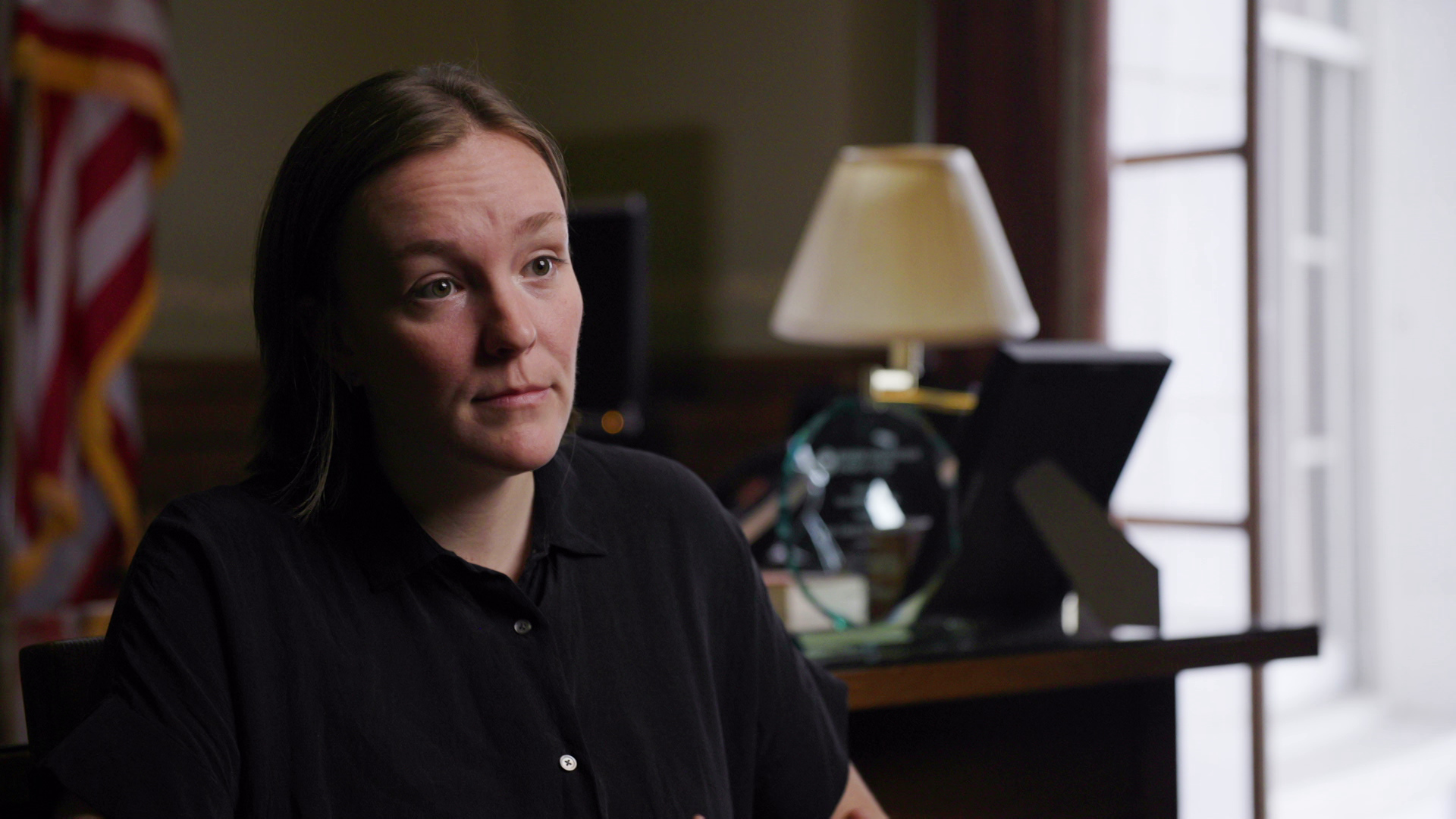
Wisconsin Assembly Minority Leader Greta Neubauer, D-Racine, speaks about how Democrats in the lower chamber of the state Legislature are planning for the 2023 session in an interview at her Wisconsin State Capitol office on Dec. 2, 2022. (Credit: PBS Wisconsin)
They hope the 2023-25 budget-writing process will create some spaces for compromise on things like increasing shared revenue.
“So supporting our local governments I think is at the top of the pile of things that we can agree on,” Agard said. “It’s whether — so we have the end point — how it is that we get there, what are the paths that we use to move forward? To be continued.”
Agard also hopes to break the impasse in the Senate over confirming Gov. Evers’ appointees. Over the past four years, Republicans have refused to hold final votes on some Evers selections for his cabinet and important governing bodies like the Natural Resources Board.
“Based on what I’m hearing from my colleagues on the other side of the aisle, they’re ready to start moving forward with them. Let’s have the tough conversations at the committee level. Let’s bring it to the floor. Let’s debate it and let’s vote up or down,” said Agard. “If the governor needs to go back to work, if the majority party does feel like that person is not the right fit, holding them in this weird limbo isn’t going to help the state of Wisconsin.”
But there is one area where Democrats are not looking for common ground: abortion.
“There are some issues where there is no room for compromise,” said Agard. “This is a personal health care decision. It is not a place where politicians belong — and some of my colleagues on the other side of the aisle have suggested that we also include in the doctor’s office not just politicians, but police officers.”
Republicans have talked about passing a bill that would modify the 1849 law banning abortions to provide exceptions for rape or incest.
“As one of the roughly 50% of people in Wisconsin who lost a concrete right in the last year, I know how important it is, and have heard from people across the state about how important it is that we keep fighting for comprehensive access to reproductive health care,” said Neubauer. “Exceptions are not comprehensive, and we know that.”
Democrats would rather keep the current law in place while they wait for legal challenges to make it to the Wisconsin Supreme Court.
Which leads to the other priority for Democrats — electing a liberal to the state Supreme Court in April.
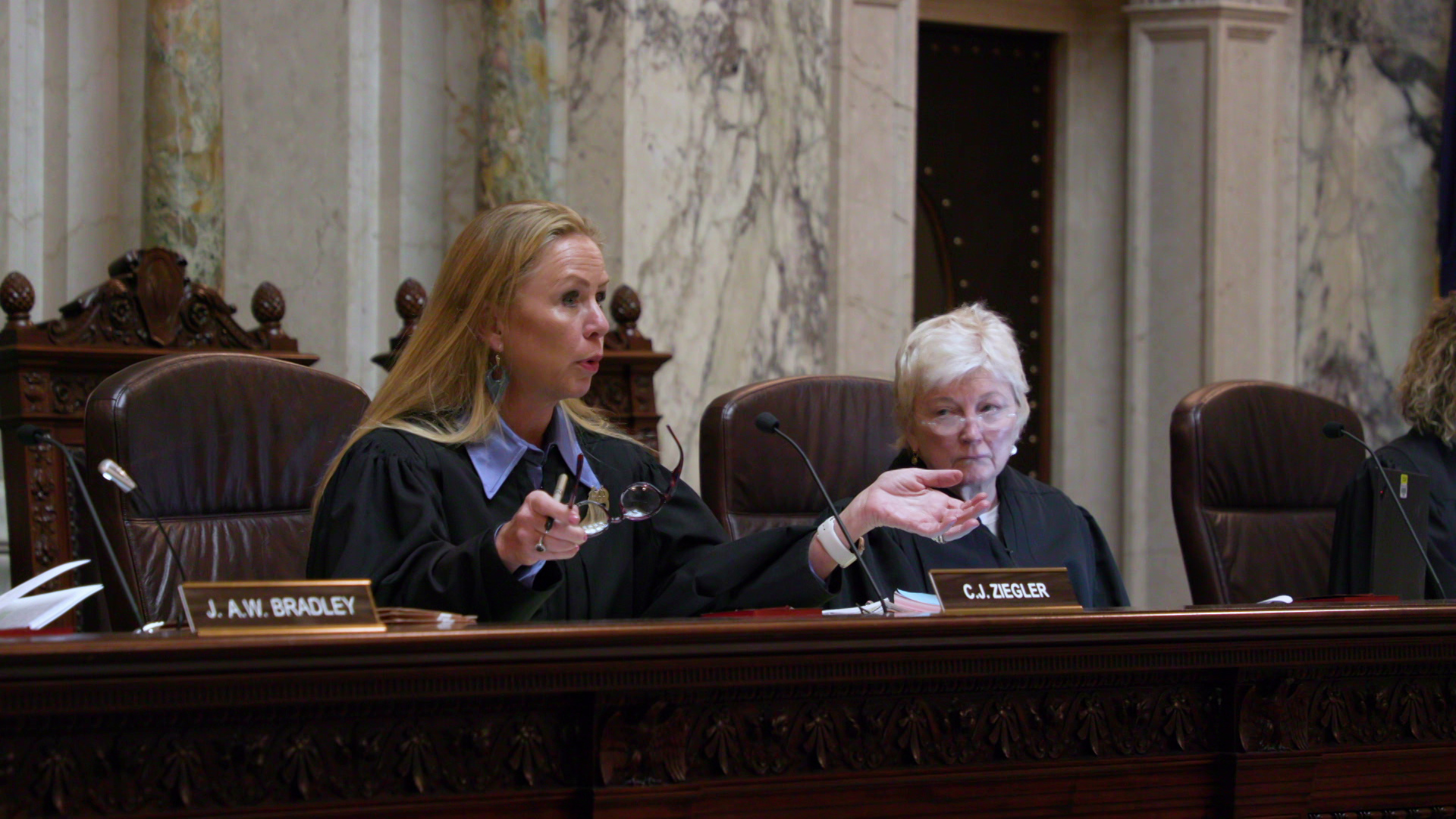
Wisconsin Supreme Court Chief Justice Annette Ziegler asks a question during oral arguments in a case being heard on Sept. 28, 2022, while Justice Patience Roggensack listens from the bench. A longtime conservative justice on the court, Roggensack is retiring from the state’s high court. Democrats are organizing for the April 2023 vote to replace that seat in the hopes of electing a liberal justice who could prove decisive on issues like abortion and legislative redistricting. (Credit: PBS Wisconsin)
“We are going to be actively engaged in making sure that we elect a justice who is willing to put the people of Wisconsin over their party,” Neubauer said.
A liberal majority on the court could write new legislative maps in Wisconsin, giving Democrats a chance to win more seats and hold more sway at the Capitol.
“Not only is it tied to redistricting, abortion rights, union rights,” said Agard, “the list goes on and on.”
More Politics
Recent Here & Now
Statement to the Communities We Serve
There is no place for racism in our society. We must work together as a community to ensure we no longer teach, or tolerate it. Read the full statement.
 Passport
Passport




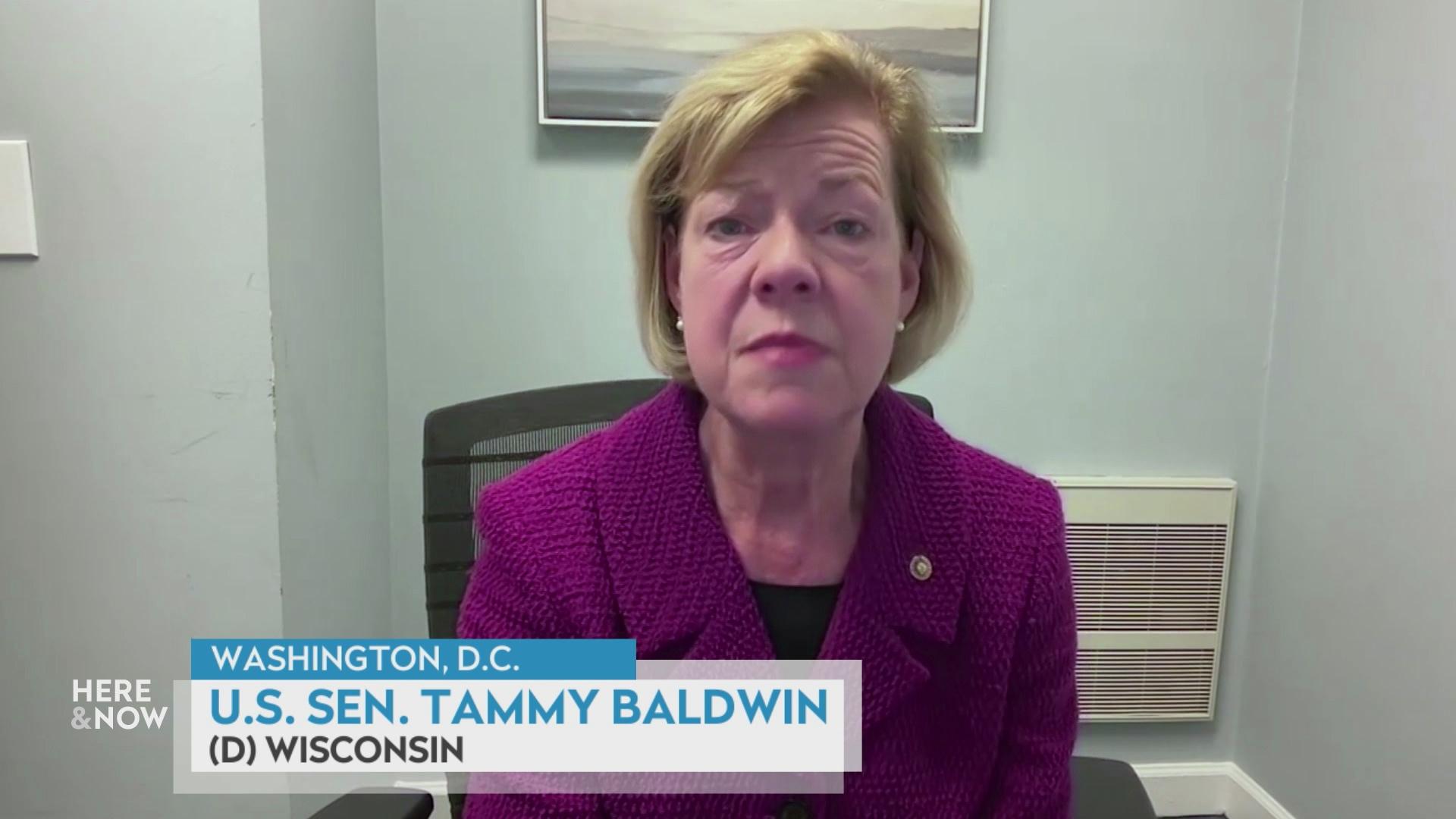


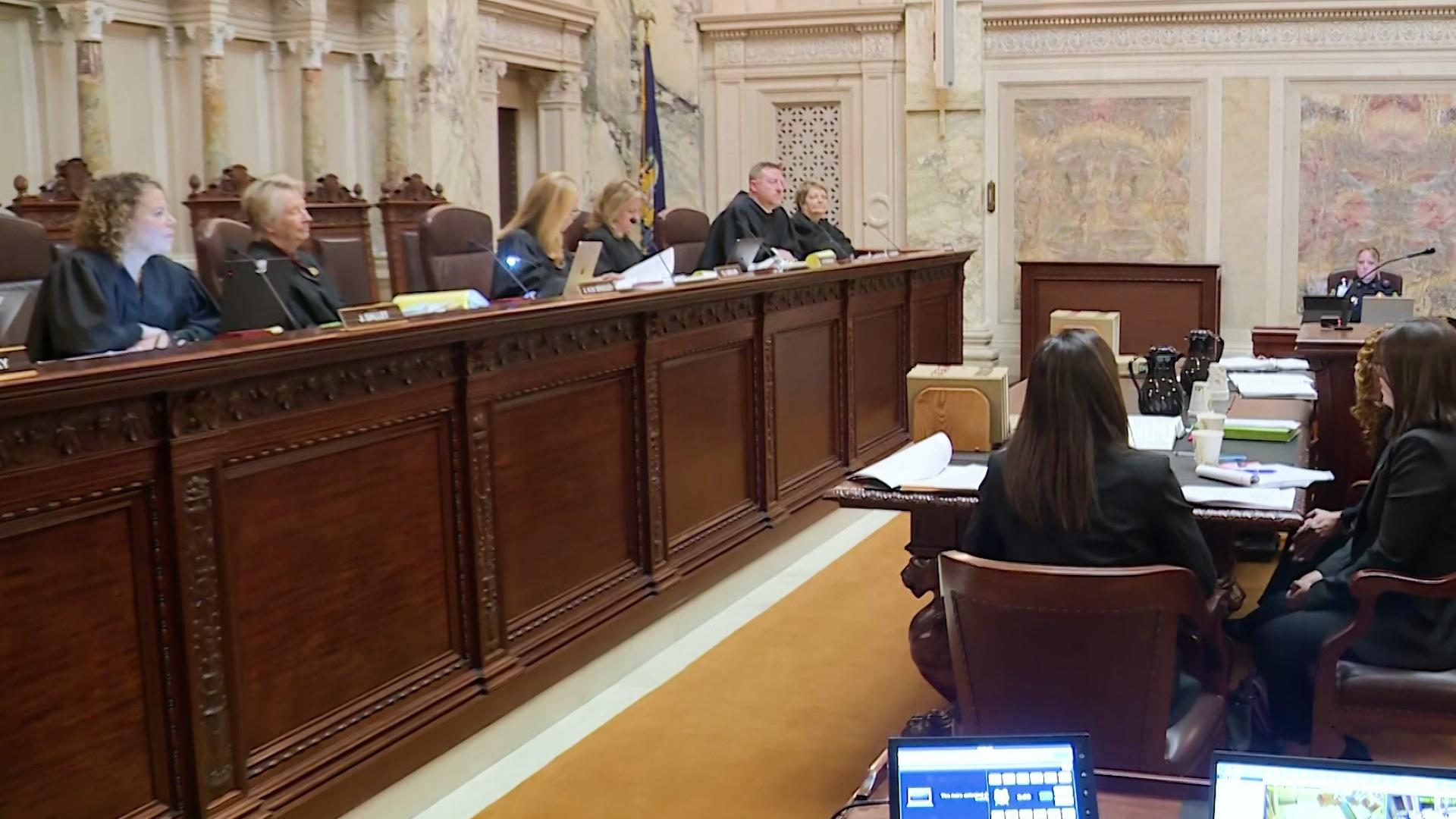

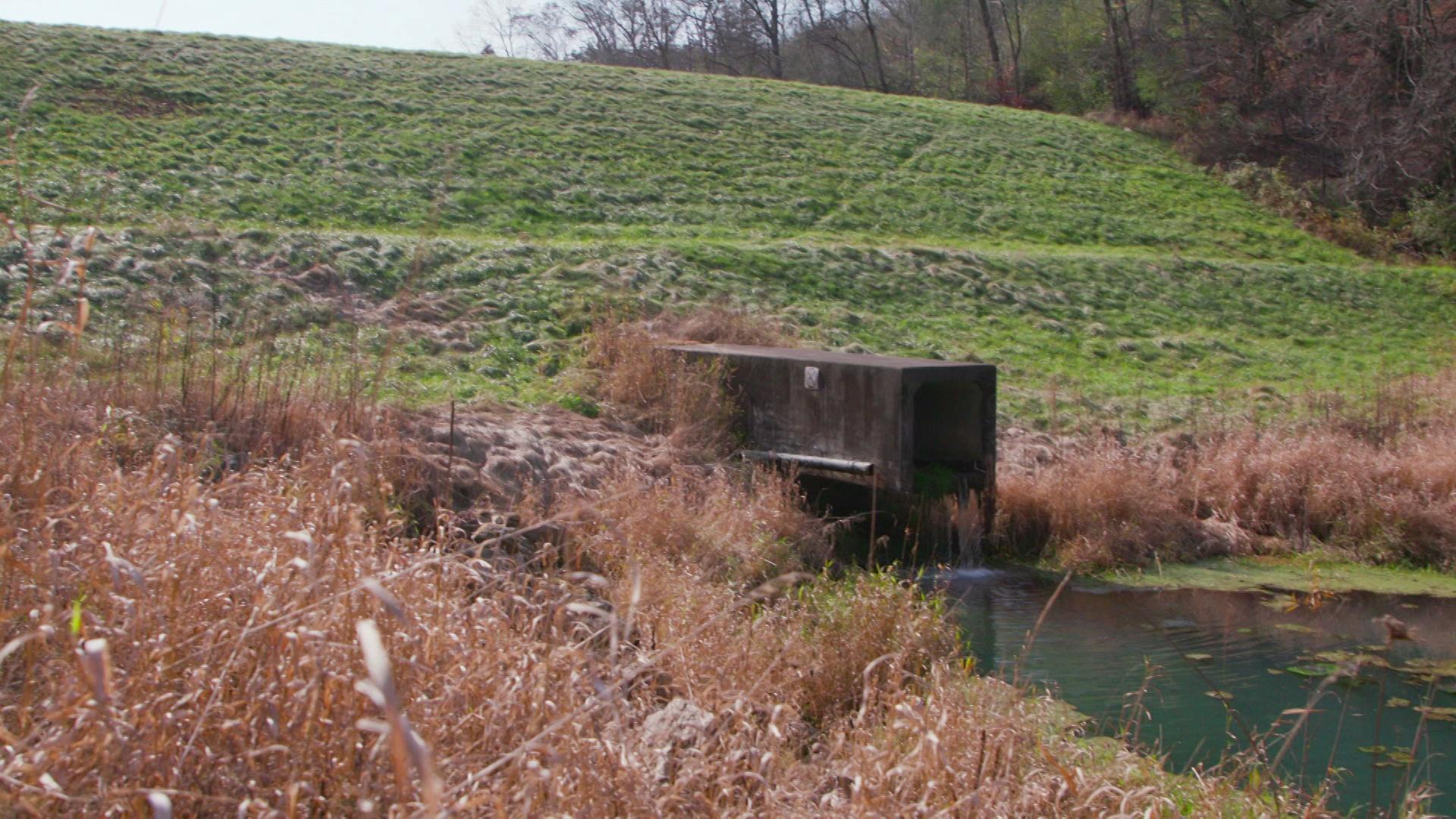


Follow Us